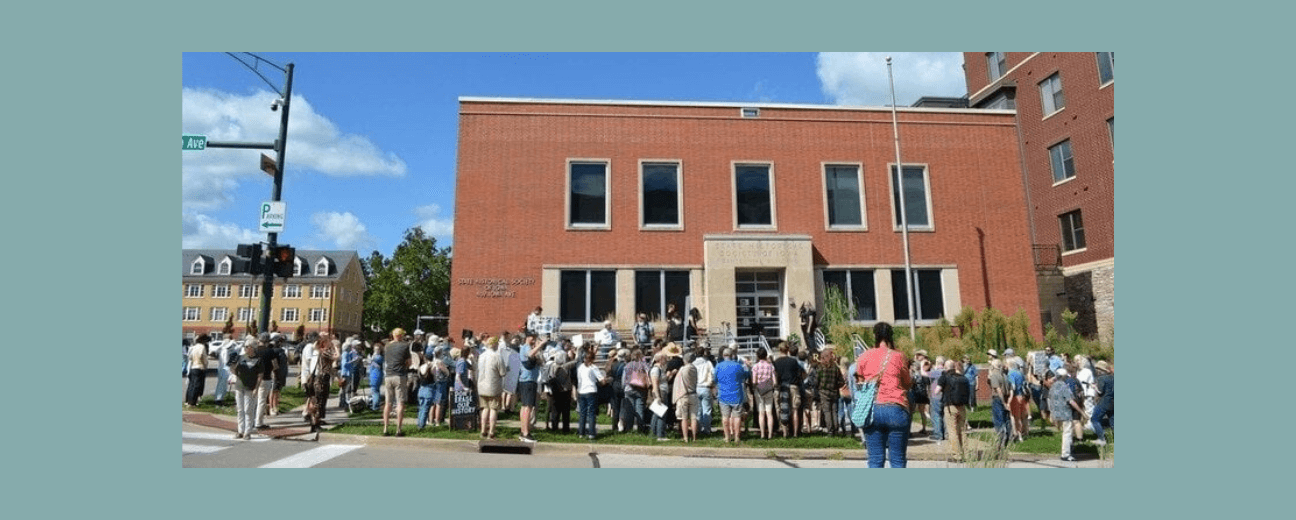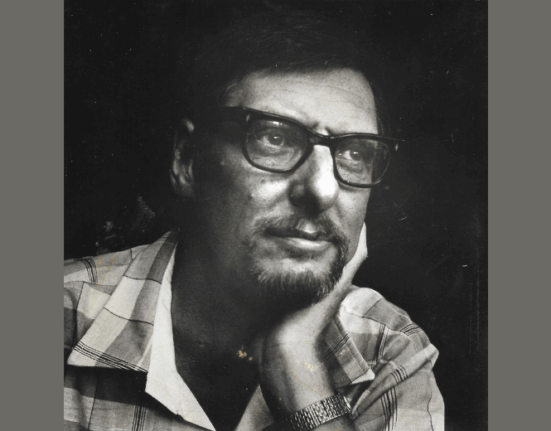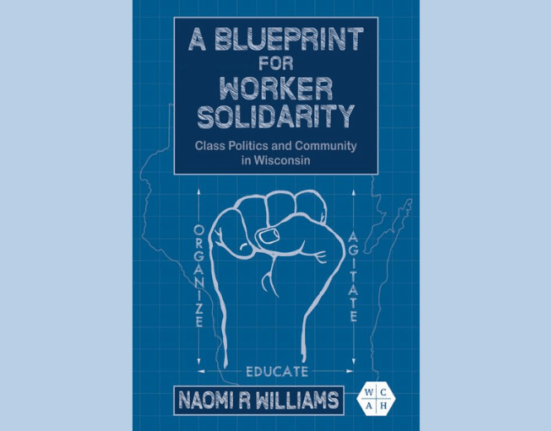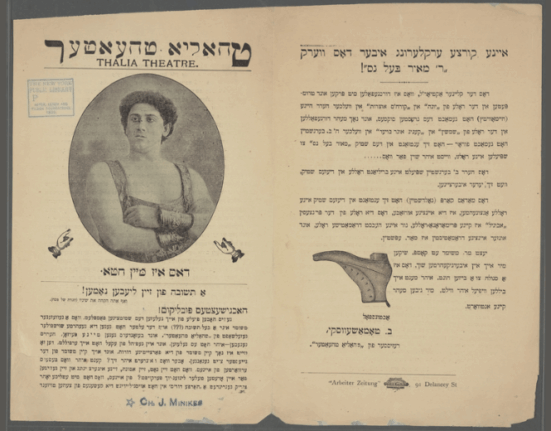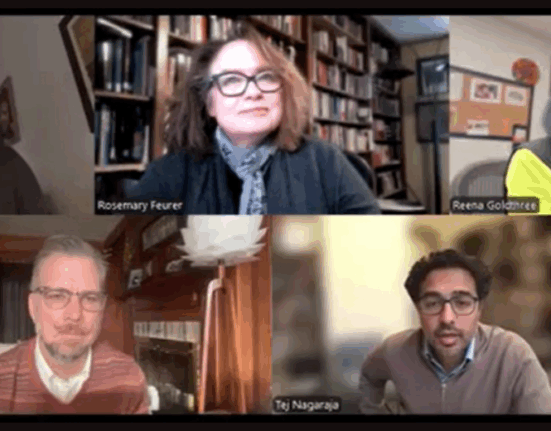I know you’re busy, dear labor history colleagues, so I’m going to put this ask right at the top even though it messes up the flow of my essay a little: please sign this petition opposing the closure of the State Historical Society of Iowa’s research facility in Iowa City, which houses the Iowa Labor Collection. Thank you. There’s more on this at that link and below too if you’re interested.
The Iowa Labor History Society (ILHS) recently screened John Sayles’s powerful film Matewan in Des Moines where I live. The film’s trailer is a more effective summary than anything I know how to write; I hope it suffices to say the film dramatizes the hardships employers and the state inflicted on coal miners in the early 20th century U.S., the struggles miners and mining communities waged in response, and the repression they faced. (I brought my leftover popcorn home to my kids. They asked why I had it. I told them I’d been at a movie. They asked what it was about and when I told them my oldest kid said “wow that is some dystopian novel kinda shit!”)
I’d seen the film before but never in a movie theater, and it had been years since I first watched it. In those years I wrote a book on workplace injury and how law falls short of what’s needed, which meant spending a lot of time focused on the intolerable frequency of workplace injuries and the deep suffering they create. More recently I read Trish Kahle’s wonderful, powerful book Energy Citizenship, which stresses how deeply the history of coal mining is a history of bloodshed, both in the form of occupational injuries and illnesses and in the form of violence by company goons, and that this has not ended in the present. I think that’s part of why I started crying very early in the film and basically didn’t stop until the credits.
I genuinely love the film, even more now that I’ve seen it in the theater, and am so glad we screened it. (I say ‘we’ because I’m on the ILHS board but to be clear, I didn’t work on this project, I just showed up to enjoy the movie.) At the same time, I found myself wrestling a little with the film this time around. I don’t know how much this is a real issue or a me thing. At some level I want labor films to be didactic propaganda – to be uplifting, to be inspiring, and other than a few moments Matewan generally is not (it made me cry, like I said), though it’s not demoralizing either. I think this is unfair of me, in part because my own scholarship is far from uplifting, and in part because I think I fail to treat the film as a work of art. The film is a dignified depiction of working class life in the full span of what workers are subject to and fight against, and how they make lives and communities for themselves anyway despite what’s done to them. I’m not sure it’s possible, let alone appropriate, to depict the awfulness of death at work and at the hands of murderous company thugs in a way that feels good or uplifts or inspires. The hardships should be mourned and the fight for better lives should be celebrated, and those two things don’t sum up neatly. Maybe what I really reacted to and wrestled with wasn’t the film but the awful realities the film depicts and how it doesn’t all add up.
To put it another way (and frankly I worry this is a bit of a cop-out on my part), class society creates hard shit in people’s lives and people have to work through how to live with that, to figure out what it means for themselves, individually and collectively. It’s more a matter of hard questions than easy answers. We must keep alive the memory and history of that hard shit and of people living despite it. I think part of the aspiration behind and value of the ILHS and similar organizations is to help with all of that – the keeping alive of the past and of working through what to make of it by presenting it to our fellow workers. We help create a public sphere – or instances of public-sphere-ness – where working people are provided some time and space and togetherness and some artistic and intellectual material to reflect on this hard stuff, and to analyze the social processes that give rise to it.
After the film ended, I hung around to help John McKerley, oral historian and ILHS president, pack up the banner and pamphlets he’d brought. I mostly helped to have an excuse to chat. As we talked about what I’ve mentioned here (this blog post is mostly me writing down our conversation), someone we hadn’t met before stopped to chat with us. His name’s Tyler. He said he’d been a history major in college and enjoyed the film. He added in a mix of excitement and frustration that “this shit isn’t covered in college classes most of the time!” John and I introduced ourselves and Tyler said he’d just joined the society online using his phone, after he signed the petition I asked you to sign at the top of this post. (Have you signed it yet? In his newsletter John wrote a longer write up about what’s going on, as well as talking on Iowa Public Radio recently about the situation as well as a play about Clarence Darrow that we’re putting on soon around Iowa. Personally I think Darrow would be outraged by what’s been done to our labor history colleague Tom Alter. If you can, consider donating to support him and his family at this link.)
The three of us talked a while about the film, the larger themes it raises, the general situation in Iowa and the US, and other classic labor movies––some of which ILHS has screened before, some of which we hope to screen in the future. (I really want us to screen Ken Loach’s The Big Flame, for one!) At one point John said to Tyler that while of course these are great movies and it’s great to see them, “the real point is conversations like these.” The programming helps foster connections, spark conversations. I like to think of this as a version fostering small instances of a working class public sphere. Again, this may be a cop-out, but as someone who lends a hand in a project like ILHS, I don’t have to have everything worked out about what to make of Matewan and similar matters (certainly not to the degree that I feel responsible for talking appropriately about injury in my scholarship). Instead I can be part of raising the issue and then taking part in the discussion afterward, with the hope being that in the short- to medium-term that collective process of conversation will figure out what it all means. The further hope is that in the longer term this helps enrich the activity of the labor movement and the working class more generally.
Our efforts out here in Iowa are one small part of a larger class-wide effort, one that feels like it’s on the back foot these days with distressingly high stakes. That’s hard to take sometimes. I said something to that effect as John and I carried the banner and box of remaining ILHS leaflets back to his car. His reply struck me: “I’m an African American historian as much as anything else I do, and I think the understanding of the long civil rights movement, or the long Black freedom struggle, is important as a reference point. Of course those struggles are often labor and class struggles immediately, but I mean the long part, the time scale.” I nodded vigorously, responding, “right, we’re talking about short term fights that are part of decades-long efforts.” “Exactly. And, obviously, that there’s an important history of people who have been in similar circumstances.”
That brings me back to our petition. As historians, we of course loathe the prospect of the loss of the records that make our scholarship possible. (As Emma Barton-Norris thoughtfully discusses, those records themselves are products of the labor of archivists.) As labor historians in particular we especially loathe the threat to the history of the working class and the labor movement, and we understand that the violence baked into class as a social relationship is twinned with disrespect for working-class people, living and dead.
Put another way, people who can exploit other people and live with themselves can of course also live with spitting on and trying to erase the history of the exploited. Our class needs to stand up for bread and for roses because our exploiters don’t care if we have either. This is clear in a great deal of labor history and Matewan conveys it viscerally. Labor history, in an expansive sense that includes the labor of archivists, academic scholarship, and art like Matewan, has at least two roles in relation to bread and roses. Labor history itself falls under the ‘roses’ heading, being dedicated to respect for human meaning and dignity in the here and now, and being also a resource for analysis that helps us understand the processes to which we are subjected. That basic outlook is part of efforts like ILHS and the fight to save our history and the many other similar efforts across the US and around the world.
Again, if you haven’t, please consider signing our petition, and if you have thoughts or experiences you want to share about doing public humanities/public culture kinds of activities around work, working-class life, and labor history, please don’t hesitate to get in touch – and remember to support a labor history or labor arts organization near you.
Author
-
Nate Holdren is the author of the book Injury Impoverished: Workplace Accidents, Capitalism, and Law in the Progressive Era (2020). He is employed as an associate professor at Drake University.

